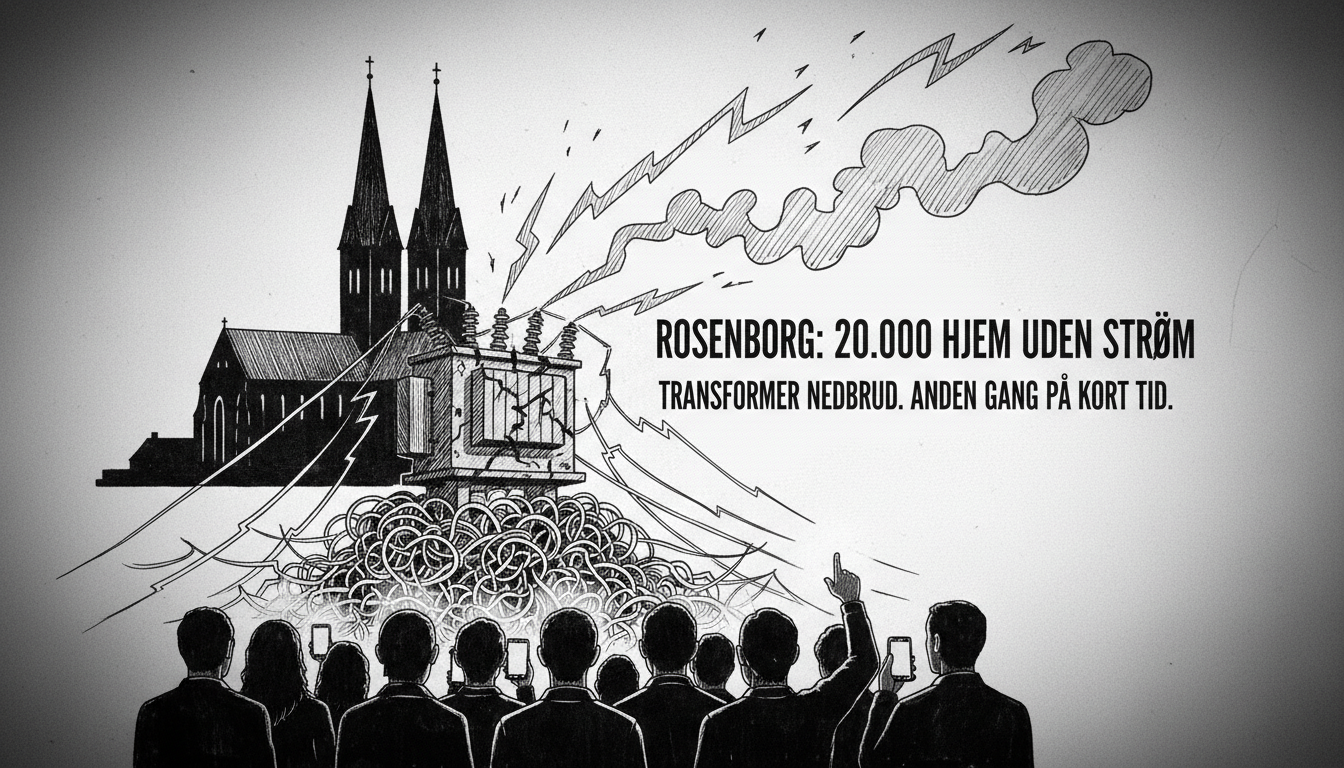Approximately 20,000 households in the Roskilde area lost electricity due to problems at a transformer station. The outage affects customers of utility companies Cerius and Radius. The transformer station experiencing issues is located on the outskirts of Roskilde toward Hedehusene.
Utility officials confirmed they are working to restore power but have not identified the exact cause of the problem. Customers received text messages indicating electricity should return by 10:41 PM. A press representative stated there is no fixed timeline for full restoration, though similar outages typically take three to four hours to resolve.
Some customers have already reported their power returning. Officials note it is common for electricity restoration to occur in blocks rather than all at once. This approach allows crews to safely manage the reactivation process across the affected network.
This incident follows a much larger outage in late August when 102,000 electricity customers lost power across the capital region. That event resulted from a fault at a transformer station in Ejby near Rødovre. Utility crews resolved that outage within 50 minutes.
Radius operates the electrical grid supplying approximately one million homes and businesses across the capital region, North Zealand, and parts of Central Zealand. The company manages critical infrastructure that supports daily life and economic activity throughout eastern Denmark.
Denmark's electrical grid is generally considered highly reliable, making outages of this scale particularly disruptive. The country has invested heavily in renewable energy and grid modernization, but aging infrastructure components remain vulnerable to unexpected failures.
For international readers, it's worth noting that Danish utility companies typically provide compensation for prolonged outages. Customers without power for more than 12 hours may be eligible for automatic payments under consumer protection regulations. The country's energy authority closely monitors restoration efforts during major incidents.
Residents affected by the outage should avoid opening refrigerators and freezers unnecessarily to preserve food. Those relying on medical equipment requiring electricity should contact their healthcare providers about backup options. The situation highlights the importance of household emergency preparedness even in countries with advanced infrastructure systems.
Utility crews continue working through the evening to identify the transformer station fault and restore full service. The incident serves as a reminder of society's dependence on reliable energy systems and the cascading effects when critical infrastructure experiences unexpected failures.

